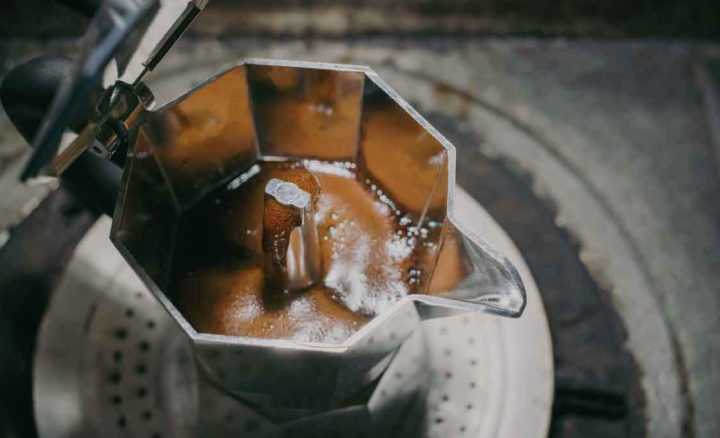
An Italian icon is quietly being reshaped in Gasperich, as Bialetti’s future comes under the influence of global family capital.
Behind the scenes in Luxembourg’s Technopolis Gasperich business park, one of Italy’s most recognisable brands is becoming part of a new European investment story. The acquisition of Bialetti, finalised on 30 July through a successful public bid on Euronext Milan, marks the latest chapter in the moka pot’s journey from Italian icon to global, cross-border asset.
A moka pot is a stovetop coffee maker that brews coffee by passing pressurized steam through ground coffee. Invented by Alfonso Bialetti in 1933, the moka pot is popular for making espresso-like coffee at home and is a standard piece of equipment in Italian kitchens. The firm has sold more than 300 million pots since it was invented.
NUO Capital, a Luxembourg-based investment platform jointly owned by the Hong Kong-based Cheng family and Italy’s Agnelli dynasty, is at the centre of its acquisition.
Finance meets heritage
Stephen Cheng, managing director of The World-Wide Investment Company Limited, Hong Kong’s oldest family office, serves as NUO’s public face. His family’s estimated fortune of 20 billion euros is matched by multiple generations of experience in cross-border investing.
Through NUO, the Chengs have partnered with Exor, the listed holding company of the Agnelli family that is publlicly listed in Amsterdam. Exor holds 49.7 percent of NUO’s economic rights and half of its voting rights.
The Agnelli name is synonymous with Italian industrial power. Their wealth, estimated at 15 billion euros, stems from carmaker Fiat and extends to Ferrari, Stellantis and Juventus. Their investment in Ludovico Martelli, the Italian grooming brand behind Proraso and Marvis, is now part of the cross-border alliance with the Chengs.
Luxembourg’s quiet role
From the outside, NUO looks like a textbook case of global capital deployment. Luxembourg offers neutrality, tax efficiency and legal flexibility. From here, the platform issues vendor loans, channels hybrid capital and consolidates assets, far from the cultural context of the brands it acquires.
NUO’s holdings include stakes in Sacs Technorib (luxury speedboats), Slowear (fashion), Artemest (furniture e-commerce), and IT-firm Bending Spoons (apps like Komoot and Wetransfer). It also owns 30 percent of Ludovico Martelli.
Launched in 2021 with 300 million euros in permanent capital, NUO was pitched as a long-term commitment to supporting “Italy’s mid-sized champions.” But with its legal base in Luxembourg, capital from Hong Kong and strategic input from Amsterdam-listed Exor, a question arises: whose vision of Italy is being advanced?
‘Functional luxury’ coffeepot
Bialetti, rooted in 1930s Piedmont, is more than a coffee pot. It is part of the Italian morning ritual. NUO in April acquired 78.6 percent of the company for 53 million euros, or 0.47 euros per share, well above its market price. It obtained the remainder of the shares upon completion of its bid on 30 July.
The deal was financed through a mix of instruments: 30 million euros in junior debt from Illimity Bank and Amco, 45 million euros in senior debt from Banco BPM and others, and 49.5 million euros in equity.
NUO’s stated strategy is to transform Bialetti into a “functional luxury” brand aimed at premium coffee segments and new markets in Asia and the Middle East. For now, production is expected to remain in Italy.
Shifting priorities
In public statements, both Stephen Cheng and Exor chairman John Elkann stress patient capital, shared values and respect for heritage. But some critics see a familiar pattern: Italian brands absorbed into opaque international structures.
One Italian blogger lamented the deal as a case of “death by chopstix”, a crude reference to perceived foreign control over cultural icons. Whether fair or not, it underscores the tensions at play.
The acquisition illustrates how brand heritage and strategic investment objectives are increasingly interwoven. While family capitalism remains a reference point, its implementation often relies on cross-border financial structures and legal mechanisms.
The moka pot’s next chapter will be shaped by decision-makers in Italy and Hong Kong, brought together via Luxembourg. It also reflects a broader shift in how Italian legacy brands are managed and scaled globally. The long-term impact on Bialetti’s identity will depend on how these global influences align with the brand’s cultural roots.
Officials at Bialetti, WWICL, Exor and NUO in Luxembourg and Milan did not respond to questions from Investment Officer.
Related articles on Investment Officer:
- A Luxembourg Raif helps finance Bill Gates’ Rome hotel
- Wealth migration fuels Milan’s rise as investment launchpad
- One investor at a time, Luxembourg steps into the PE fundraising spotlight